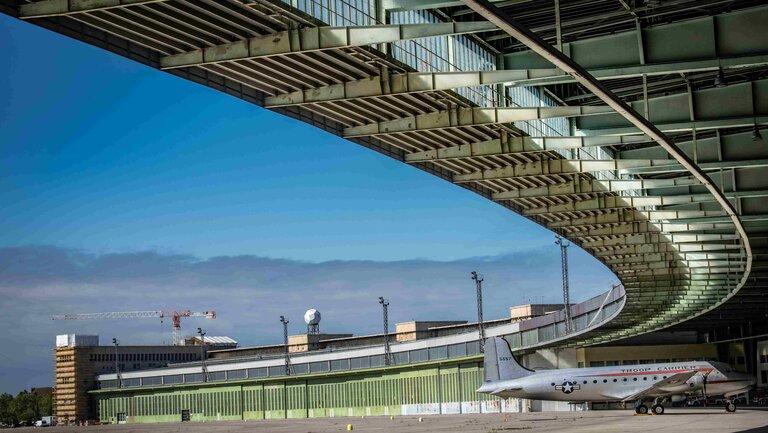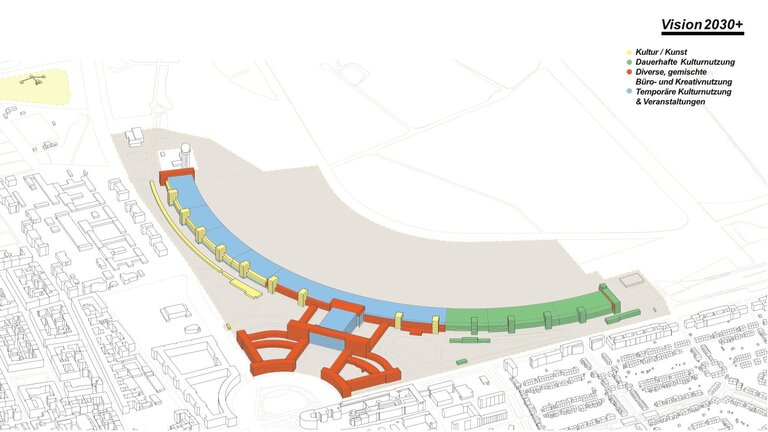Berlin, 01.06.2021. With a gross floor area of 307,000 square meters and 7,269 rooms, Berlin Tempelhof Airport (THF) has been considered one of the largest buildings in the world since its completion in 1941. Following closure of the airport in 2008, the 300-hectare airfield has been reopened to the public, offering space for a wide variety of leisure activities, while the building and its grounds have been used as a venue for trade fairs, sporting events, concerts, and award ceremonies.The heritage-protected complex is now to be upgraded to make it climate neutral, thus making a valuable contribution to environmental protection. That is the aim behind the ‘Technical Infrastructure 2030’ project being developed by Tempelhof Projekt GmbH with the support of Stuttgart-based planning and consulting company Drees & Sommer SE.
Tempelhof Airport’s checkered past is inseparable from the history of aviation and the horrors of the Cold War – and the great international solidarity shown during the Berlin Airlift. Tempelhof is not only a symbol of hope and freedom, but also reflects the blend of cultures and diversity of the German capital. A city-wide effort and the initiative of an entire generation is now needed to ensure that the site can continue to fulfill its important role. To this end, Tempelhof needs to be refurbished in keeping with the goal of achieving a climate neutral Berlin as part of the ‘Metropole Berlin 2050’ project.
The first step required is the complete renovation of the central building services equipment in the heritage building. For this stage, Tempelhof Projekt GmbH is currently developing the Technical Infrastructure 2030 project, TI 2030. Jutta Heim-Wenzler, Managing Director of the company, is sure that it will make a major contribution toward achieving Berlin’s climate goals, “The project could reduce the building’s energy consumption by 44 percent, cutting carbon emissions by some 12,000 tonnes.”
As part of Vision 2030+, Tempelhof Airport is to become Berlin’s central hub for art, culture and creative industries over the next few years. In addition to mixed office space, the hub will also host temporary events and permanent cultural uses. The ground floors of the airport buildingswill be made accessible to the public.

